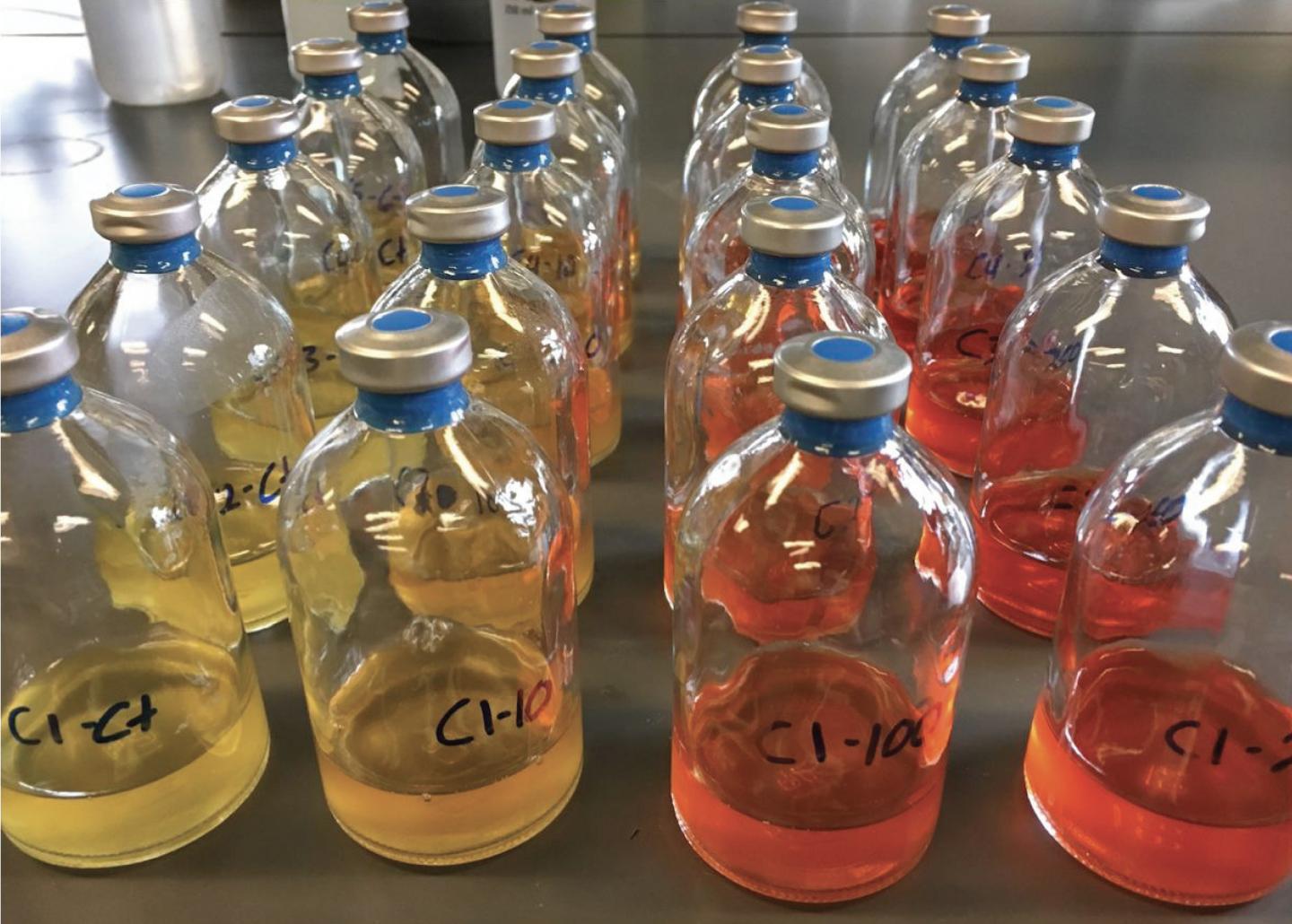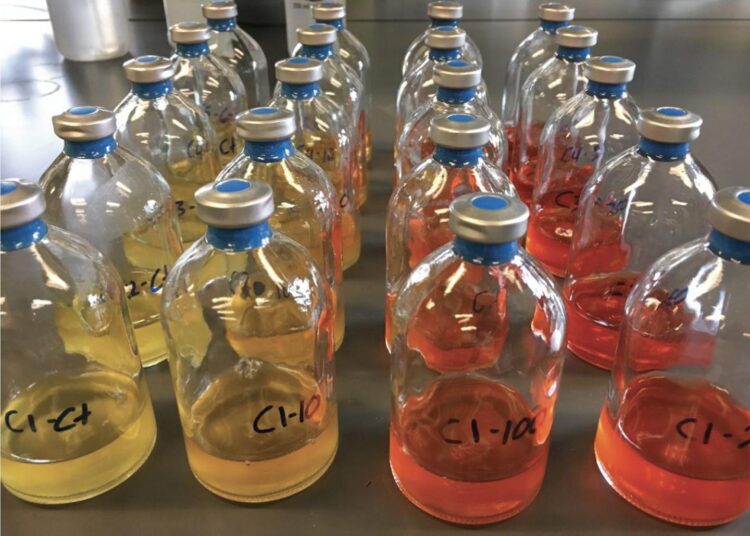Naturally occurring gut bacteria can clean up chemo toxins in the body, study finds

Credit: Northwestern University
In the human gut, good bacteria make great neighbors.
A new Northwestern University study found that specific types of gut bacteria can protect other good bacteria from cancer treatments — mitigating harmful, drug-induced changes to the gut microbiome. By metabolizing chemotherapy drugs, the protective bacteria could temper short- and long-term side effects of treatment.
Eventually, the research could potentially lead to new dietary supplements, probiotics or engineered therapeutics to help boost cancer patients’ gut health. Because chemotherapy-related microbiome changes in children are linked to health complications later in life — including obesity, asthma and diabetes — discovering new strategies for protecting the gut is particularly important for pediatric cancer patients.
“We were really inspired by bioremediation, which uses microbes to clean up polluted environments,” said Northwestern’s Erica Hartmann, the study’s senior author. “Usually bioremediation applies to groundwater or soil, but, here, we have applied it to the gut. We know that certain bacteria can breakdown toxic cancer treatments. We wondered if, by breaking down drugs, these bacteria could protect the microbes around them. Our study shows the answer is ‘yes.’ If some bacteria can break down toxins fast enough, that provides a protective effect for the microbial community.”
The research will be published on May 26 in the journal mSphere.
Hartmann is an assistant professor of environmental biology at Northwestern’s McCormick School of Engineering. Ryan Blaustein, a former postdoctoral fellow in Hartmann’s laboratory, is the paper’s first author. He is now a postdoctoral fellow at the National Institutes of Health.
Although cancer treatments are life-saving, they also cause profoundly harsh and painful side effects, including gastrointestinal issues. Chemotherapies, in particular, can obliterate the healthy, “good” bacteria in the human gut.
“Chemotherapy drugs do not differentiate between killing cancer cells and killing microbes,” Hartmann said. “Microbes in your gut help digest your food and keep you healthy. Killing these microbes is especially harmful for children because there’s some evidence that disruption in the gut microbiome early in life can lead to potential health conditions later in life.”
Working with Dr. Patrick Seed, a professor of pediatrics and microbiology-immunology at the Northwestern University Feinberg School of Medicine, Hartmann’s lab learned from Raoultella planticola. Naturally occurring in the human gut in low abundances, Raoultella planticola can break down chemotherapy drug doxorubicin, which has been demonstrated in other research.
To test whether or not this breakdown effect could protect the entire microbiome, the team developed simplified microbial communities, which included various types of bacteria typically found in the human gut. The “mock gut communities” included bacteria strains (Escherichia coli and Klebsiella pneumoniae) that are good at breaking down doxorubicin, strains (Clostridium innocuum and Lactobacillus rhamnosus) that are especially sensitive to doxorubicin and one strain (Enterococcus faecium) that is resistant to doxorubicin but does not break it down.
The team then exposed these mock gut communities” to doxorubicin and found increased survival among sensitive strains. The researchers concluded that, by degrading doxorubicin, certain bacteria made the drugs less toxic to the rest of the gut.
Although the research highlights a promising new pathway for potentially protecting cancer patients, Hartmann cautions that translating the new findings into treatments is still far off.
“There are several eventual applications that would be great to help cancer patients — particularly pediatric patients — not experience such harsh side effects,” she said. “But we’re still far from actually making that a reality.”
###
Media Contact
Amanda Morris
[email protected]
Related Journal Article
http://dx.





